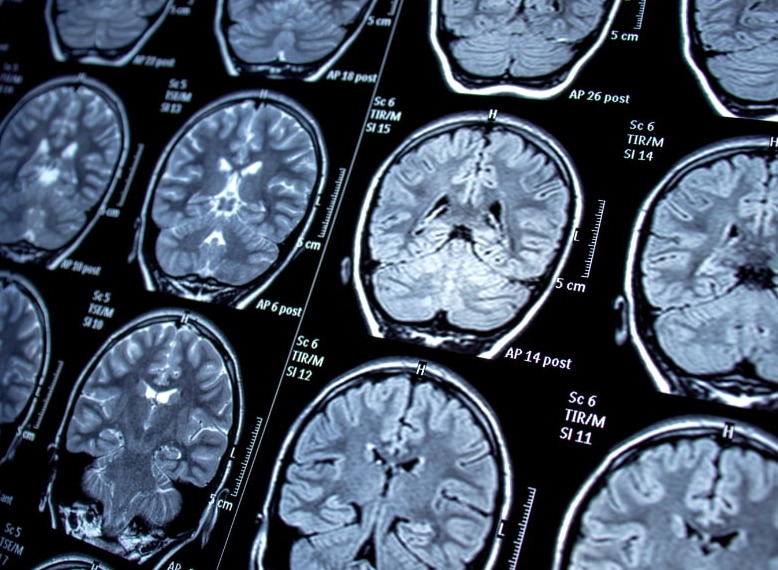8 myths and misconceptions about epilepsy
Published Nov 17, 2022 • By Claudia Lima
Epilepsy is a chronic neurological disease characterized by abnormal electrical activity in the brain, which results in epileptic seizures. There are different types of seizures, which is why there are several types of epilepsy.
As this disease is not very well-known and understood by the general population, it is surrounded by a lot of myths and misconceptions.
What are the common misconceptions about epilepsy?
Read our article to find out!

What is epilepsy?
Epilepsy is a chronic neurological condition of the brain that can affect people of all ages. It is the most common neurological disorder after migraine.
It is defined by the spontaneous repetition of seizures that result from excessive electrical discharges in a group of brain cells. These discharges can occur in different parts of the brain. Seizures are usually short, and there exist several types of them, depending on their form and intensity.
To find out more about epilepsy, read our article: Epilepsy: everything you need to know!
Today, more than 3.4 million people are affected by epilepsy in the United States and more than 50 million worldwide. According to the WHO, 70% of people living with epilepsy could be seizure-free if their condition was properly diagnosed and treated.
The causes of the disease are still unknown in about 50% of cases.
Epilepsy has a significant impact on the life of a patient. Even if in some cases seizures can be rare, their unpredictability and sometimes spectacular nature greatly affect patients' daily lives. This explains why this condition is most often accompanied by anxiety and depression.
The disease is still not well known and surrounded by many prejudices, so people with epilepsy and their families can sometimes be confronted with stigmatization and discrimination.
What are the common myths and misconceptions around epilepsy?
Epilepsy is a rare disease
False! Epilepsy is a disease which is rarely talked about, but which affects more than 3.4 million people in the US.
Epilepsy is a mental condition
False! It is a neurological disease. However, during a seizure or just before it, a patient may show behavioral or movement disorders. It should also be noted that epilepsy does not cause brain damage that could lead to mental illness.
Epilepsy is a hereditary condition
False, but can be True in rare cases! Some of the epilepsy types have a genetic origin without having been transmitted to the patients by their parents. This happens due to a genetic mutation. Idiopathic epilepsy types have a more or less proven genetic character. Genetic predisposition does not mean that epilepsy is a hereditary and therefore transmissible disease.
It is important to distinguish between epilepsy and seizures caused by another disease which is itself genetically transmitted.
It is possible to swallow one's tongue during an epileptic seizure
False! The tongue is a muscle attached to the floor of the mouth and it is physically impossible to swallow one's tongue. It is therefore recommended not to hold it back by inserting your fingers into the patient's mouth, as there is a risk of being bitten. No object should be inserted between the jaws of an epileptic who is having a seizure, as there is a risk of them swallowing it or damaging their teeth.
You should restrain someone having a seizure
False! In order to avoid injury during a seizure, it is important not to block the patient's movements. The patient should be laid down, placed in the lateral position and his head should be protected. The seizure must pass by itself, and it cannot be stopped.
A person with epilepsy has a very limited professional and personal life
False! Although some people can be more severely affected by epileptic seizures than others, in most cases epilepsy does not impair physical or intellectual ability. A patient can go to school, travel and play sports, provided their doctor approves of it, and people around them are aware of their condition. However, it is advisable to assess all the risks in advance.
It is possible for a person with epilepsy to play video games, as it is now rare for epileptic seizures to be photo-triggered, i.e. caused by a screen, and this only concerns a small number of people who are said to be photosensitive. Video game designers are now aware of the types of visual sequences that can lead to epileptic seizures.
As for professional activities, people with epilepsy have exactly the same skills and intelligence as the general population.
As far as driving is concerned, there are legal provisions that specify the conditions for obtaining a driver's license.
Women with epilepsy must not get pregnant
False! Pregnancy is possible even if it should be carefully monitored as it is considered to be at risk. Follow-up care and collaboration between the patient's neurologist and obstetrician is highly recommended. Women with epilepsy are more likely to have a baby with birth defects.
Current treatments can help predict seizures
False! Epilepsy treatments can reduce the frequency of seizures but cannot stop or predict them. Properly taking the prescribed treatment and having a healthy lifestyle can contribute to the effectiveness of the treatment. However, not all treatments are effective, as there are several types of epilepsy and several types of seizures.
Share your thoughts and questions with the community in the comments below!
Take care!
Sources :
Principaux repères sur l'épilepsie, OMS.fr
Epilepsie : symptômes, causes, traitements et prévention, Vidal.fr
Les causes de l'épilepsie, Fondation-epilepsie.fr
5 idées reçues sur l'épilepsie, Voixdespatients.fr
L'épilepsie est une maladie mentale... et d'autres idées reçues, Sante.lefigaro.fr
12 mythes et idées fausses sur l'épilepsie, Hôpitalpournefants.com
Aide au quotidien, Fondation-epilepsie.fr
Comments
You will also like

Cannabis drug halves the risk of an epileptic fit in more than 40% of sufferers
Mar 2, 2018 • 6 comments

 Facebook
Facebook Twitter
Twitter
